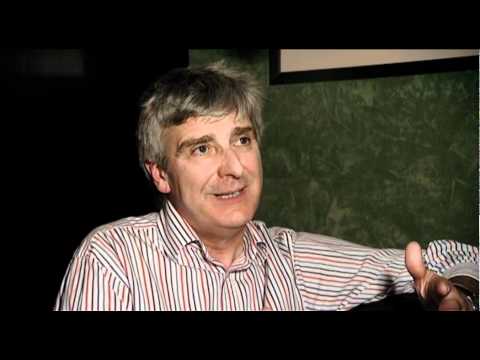CLIL. AN INTERVIEW WITH DAVID MARSH (With script)
In this short interview, David Marsh, one of the fathers of CLIL (content and language integrated learning), gives us an insight on this integrative approach.
SCRIPT:
I used to work in Southeast Asia, where the government decided that they wanted to introduce teaching through the medium of English for half the school time… And it was for me it was very interesting watching how it was done, because it was done very badly.
Basically they imported foreign staff, foreign ideas, foreign textbooks, and they thought that they could operate successfully in a school where the children were also learning through the first language, using local textbooks local staff and so on; and you ended up very easily with a situation where you have a school within a school, and I found that very interesting because I thought: why is this happening? We have the knowledge to make it work better, but somehow, for some reason, this is failing and it’s costing a lot of money.
Then I came to Europe and I was working, I was working in Northern Europe quite a lot, and I was working very much for the European Commission, and they were saying, hey after, you know, eight years of schooling there are kids leaving having learned French for eight years or Spanish for eight years and they can hardly string a sentence together. You know? What is the point of this investment?
And so that was when I started looking with a team, an international team, we, including the authors of the book, we started looking at: where does it really work where the methodologies enhance and accelerate the learning of content the learning of language and basically having fun and being happy at school?
So I guess I was brought drawn into CLIL at the beginning because I saw it as a very exciting educational experience that I certainly never had when I was a child at school.
We’re now seeing clusters of excellence in the integration of language and content across Europe, particularly well that’s the area that I know best: Spain primary education par excellence; the Netherlands secondary excellent; Austria, vocational excellent and so on. So, there are these small clusters of activity which tend to be fairly well financed by the educational administration, and which in which there’s a diversity of teachers working together. Not just subject and language teachers, but also teachers of different age groups, because the younger teachers, the generation C teachers, those that have been brought up with high exposure to the new technologies, they have a very integrated mindset, yeah? And so they actually respond very well to this idea of integrating language deeply into authentic content learning. So yes, there are examples of excellence.
The examples of failure are often where there is poor teaching through another language, be it English be it Portuguese, whatever. And it’s often where they were teaching badly in the first language, and then for some reason political or whatever, they were told they’ve got to teach in English, and then they continue to teach badly in English. I would not call that CLIL, I would call that teaching through another language or something like that. So I can’t really say that I can identify places where you have bad CLIL. You have plenty of places where you have bad teaching through English, for sure; but bad CLIL I can’t see it.
When we wrote this book, the content and language integrated learning book, with Do Coyle, Philip Hood and myself, we were very much aware that we were representing other people’s voices. And these people do come from language teaching, and they come from subject teaching, and we were looking at the experiences of these people right across the world and in listening and analyzing what they were up to. And I think the answer here is that language teaching is evolving like the teaching of subjects. CLIL does not threaten language teaching, it actually helps to enhance it. So, I certainly see the future of good language teaching is very, very strong.
The teachers have to be supported, you can’t do this alone. It’s not something for the lonely rider. I mean, the individual teachers can be inspired by this, and they can bring it into the school community and discuss it. But for this to work, teachers need to be looked after, and they need to be managed properly. And therefore their workload needs to be reduced, particularly at the beginning. I’ve seen teachers burning out from developing innovation in the past, and I’ve seen really wonderful ideas you know fail because they were never really supported. CLIL needs to be systemic. It needs to be in the system, and when we look at really good CLIL practice, which we’re now seeing in Italy, Germany, spare right across the European Union and beyond; you can see that it’s where the teacher is actively supported by the system.
Well, I’ve been doing teacher training in this area for a long time and when the when the practicing teachers arrive and at the beginning of CLIL courses, they sometimes, you know, ask the question: am I mad to be here? And we put that back to them after a couple of years, and they say, well actually I feel regenerated by this. I thought at the beginning, I, this was mad, I thought, you know, I’ll never be able to use this language well enough to teach this content; or I’ll never be able to, you know, handle that the complexities involved. The overall satisfaction level of people who get involved with CLIL is very, very high. Therefore, I think it may appeal to those teachers who really do have a vocation for teaching, who really love teaching and who want to, you know, who want to remain energized and happy during their career. Teachings a very tough job, and it does seem that CLIL is a kind of a rejuvenator.
The reason worked on the neuroscience is very, very exciting. We can now look inside the brain on a scale impossible earlier, because we’ve got the equipment, we’ve got the equipment at a cost that is reasonable for education. And we’ve got more and more people who are now looking at what is excellence in education. I mean, frankly, the big power conglomerates of the world are very concerned about education, because we are now in major competition with different parts of the world. So, the focus on the brain, is a very popular one, and I think that the real interest now for research is to look at language teaching, and to look at CLIL, and to see if there’s tangible evidence of chemical or other changes in the brain plasticity. So in a way it’s not just about CLIL, it’s about what methodology is fired the brain up, fire the neurons. And I think that is the key area for research, because we will get the results quicker than long-term studies which follow kids for years and years and years, who’ve been teaching through letting through three languages and so on.



